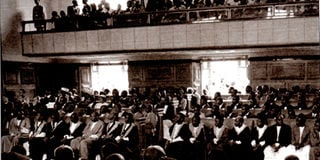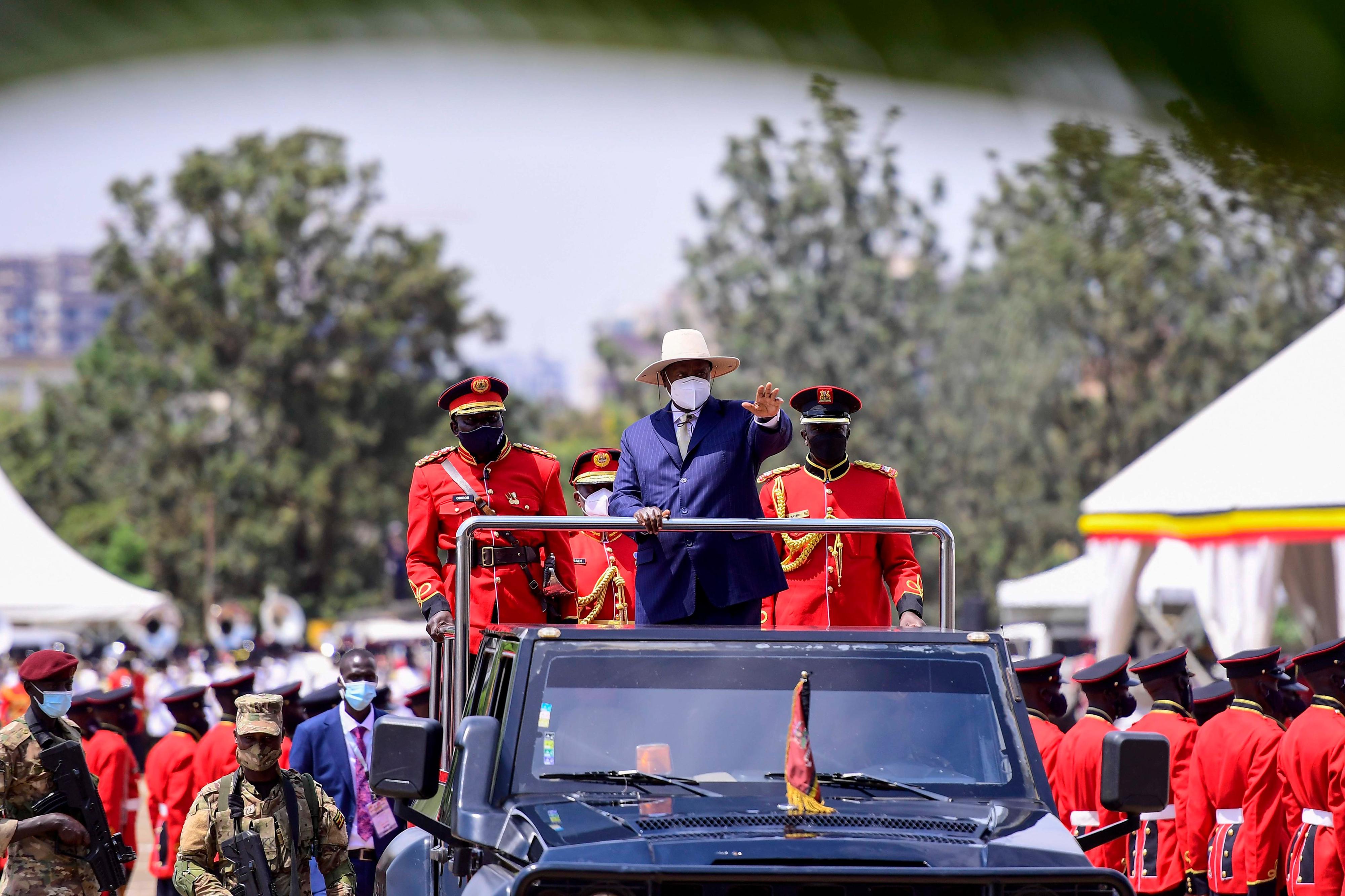Prime
How Buganda delayed Uganda’s independence

The Buganda Lukiiko (parliament ) in early 1962. Buganda wanted to secede and declare its independence before Uganda. PHOTO | FILE
What you need to know:
- Buganda wanted to secede and declare its independence before Uganda. Because of that, the independence was delayed.
Uganda could have got independence earlier than it did on October 9, 1962 if Buganda kingdom had joined hands with the rest of the country.
However, Buganda wanted to secede and declare its independence before Uganda. Because of that, the independence was delayed.
Perhaps the earliest agitation for independence was during June 1946 and 1949 Buganda aborted revolution that British termed as mere Buganda riots.
Francis Semakula Mulumba who first called for Uganda’s independence as early as 1947, was viciously opposed by Buganda traditionalists. Instead of Buganda supporting Semakula in his lobbying for Uganda’s independence, they opposed him.
Semakula lobbied independence for Uganda, Kenya and Tanganyika as was called then. So unfortunate that Semakula-Mulumba and not Ignatius Musaazi are mentioned as the leaders of the struggle for Uganda’s independence.
But facts exonerate him. For instance, after the 1949 Buganda riots, intelligence profile about Mulumba reads in part:
“There is clear evidence that he [Semakula-Mulumaba] has been in touch with communists in London and it is significant that his petition (for Uganda’s independence)to UNO now UN, was forwarded by the Russian Ambassador, Gromyiko,” Mulumba had on November 18, 1947 from London written to Russian Ambassador, Andrei A. Gromyiko seeking diplomatic support for the independence of the then three East African state.
“The political situation is very bad for the Africans in the three East African territories of Uganda, Kenya and Tanganyika. Matters have come to such a head that the Africans find no other course open to them than referring them to UNO” in part, Semakula-Mulumba’s letter to Gromyiko read in part.
It was Buganda’s attempt to secede that delayed Uganda’s independence. This, the Democratic Party (DP) leader, Benedicto Kiwanuka who later became the first prime minister of Uganda in 1961, affirmed at a press conference in London, England.
“Governor [Fredrick] Crawford is incompetent to lead Uganda,” he said. Since 1957, when Buganda refused to send its members to the Legislative Council. Kiwanuka further said “Buganda’s attempt to secede has delayed Uganda’s development and independence, ”The Guardian newspaper of October 5, 1960 reported.
His utterances angered Buganda traditionalists led by A.D Lubowa a member of the Buganda Lukiiko who wanted Kiwanuka to be arrested upon his return.
When Kiwanuka returned, he on October 31, 1960 wrote a letter to Kabaka Muteesa explaining his position. Meanwhile in late 1959, the governor of Uganda, Frederick Crawford as a representative of the Queen of England had instituted a Constitutional Committee to seek views of Ugandans on what system between federal and unitary, they wanted among other issues.
It was after the constitutional committee report also known as the John Wild Report was released on December 24, 1959 that Buganda declared its intention to secede.
Refused to meet committee
Buganda did not only refuse to have a Muganda on the constitutional committee but also refused to meet the committee. The following year, Buganda refused to send its delegates to the legislative council and went ahead to sue the Uganda Protectorate government. They lost the case at the High Court, and went to the East African Court of Appeal where the case was dismissed.
From the Wild Report, it was obvious that the prime minister would be the head of government and the Kabaka of Buganda would not be crowned the Emperor of Uganda as propagandists had claimed. Buganda was incensed.
At a public rally, Dr E.B.S Lumu, a member of the Buganda Lukiiko said: “We shall govern ourselves and Buganda under the Kabaka” the Uganda Argus newspaper of January 6, 1960 quotes. Meanwhile, Buganda continued drumming for secession and declared independence on several occasions.
The last and most memorable one being the December 31, 1960 Lukiiko declaration that Buganda would be independent effective January 1, 1961. The Lukiiko went on to elect a committee to plan for Buganda’s independence.
The committee included Katikiro Mikhail Kintu, Amos Sempa, L Basudde, Dr. E.B.S Lumu, S Lubega, Maliko Lwanga, Dr Muwazi, William Kalema, Daudi Mukubira and Godfrey Binaisa. The committee assigned by Kabaka Edward Muteesa was to negotiate and open embassies and consulates with friendly countries in Africa and beyond.
They were given huge sums of money to execute the mission because Buganda wanted to host independence celebrations with foreign dignitaries before Uganda attain independence.
How much the Buganda independence committee got is not clear; but what is known for a fact is that no single embassy or consulate was opened anywhere in the world.
So did the committee reimburse the money? From the minutes of the Lukiiko, given to the press and quoted by the Uganda Eyogera, a Luganda newspaper of October 6, 1960, wrote that after the Lukiiko, there were jubilations outside the Bulange.
Under the title, “Buganda Omungereza emufumudde” the newspaper wrote that Buganda was to take Entebbe airport and all schools in Buganda except Makerere University, postal stamps will have a picture of Muteesa II, and Buganda would soon be a member of the Commonwealth. Katikkiro Kintu also mentioned that a copy of the resolutions made by the Lukiiko of the October 5, 1960 would be sent to the Queen of England.




